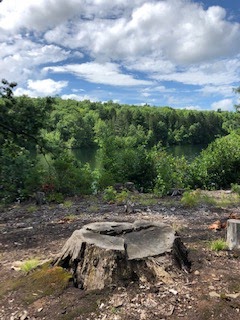In 1902,
pioneering American psychologist William James wrote the following about consciousness:
Our normal waking consciousness is but one special type of consciousness, whilst all about it, parted from it by the filmiest of screens, there lie potential forms of consciousness entirely different...No account of the universe in its totality can be final which leaves these other forms of consciousness quite disregarded.
Okay, truth be told,
I don't think I really understand what consciousness is.
But I am fascinated with it, and I am relentless in my search for exploration of the complexity of human nature.
Yet, over the years, I've seen images like these on the internet,
and all I've wondered is:
But what does that even mean or look like in the real world?
I've tried to read lay-articles about philosophers like
David Chalmers (e.g.
Why Can't the World's Greatest Minds Solve the Mystery of Consciousness? The Guardian 1/21/15), and finished reading the piece with
more questions and confusion than when I started.
And yet here I am, attempting to contemplate out loud what I believe I experienced about 7 months ago in my meditation practice in regards to consciousness, and how
mindfulness has the potential and the capacity to expand our collective consciousness.
I have actually wanted to share this experience with you all for some time, but I held back.
In part because I have never been too interested or motivated to seek unusual or peak experiences in my meditation practice.
I think I'm just way to
practical for all that.
But also because, I have a pretty
strong aversion to anything that has even a whiff of
"new age" or spiritual cliché, so to write about "expanding consciousness" is at a minimum,
ironic.
In fact, what finally led me to open up about these two meditation experiences that happened on the most ordinary of summer days while sitting on my back deck, was reading about what I believe was a similar experience by an
MIT physics professor.
His name is
Alan Lightman, and he has dual appointments at the prestigious
Massachusetts Institute of Technology in Cambridge, Massachusetts in both
science (physics) and the
humanities (creative writing). He is also the author of multiple
fiction novels
and nonfiction books on science- a most lovely, renaissance-like, balance of academic disciplines.
I encountered Dr. Lightman's most recent book,
Searching for Stars on an Island in Maine (2018), through
Maria Popova's fantastic website and resource
BrainPickings (www.brainpickings.org)
in her December 21st, end of the year post entitled "
Favorite Books of 2018."
In her post, Ms. Popova quoted this passage from Dr. Lightman's new book that describes his own moment of presence that he had in a small boat underneath the stars in the state of Maine.
Ms. Popova described his experience as "
transcendent":
No one was out on the water but me. It was a moonless night, and quiet. The only sound I could hear was the soft churning of the engine of my boat. Far from the distracting lights of the mainland, the sky vibrated with stars.
Taking a chance, I turned off my running lights, and it got even darker. Then I turned off my engine. I lay down in the boat and looked up. A very dark night sky seen from the ocean is a mystical experience.
After a few minutes, my world had dissolved into that star-littered sky. The boat disappeared. My body disappeared. And I found myself falling into infinity. A feeling came over me I'd not experienced before...I felt an overwhelming connection to the stars, as if I were part of them. And the vast expanse of time--extending from the far distant past long before I was born and then into the far distant future long after I will die--seemed compressed to a dot.
I felt connected not only to the starts but to all of nature, and to the entire cosmos. I felt a merging with something far larger than myself, a grand and eternal unity, a hint of something absolute.
After a time, I sat up and started the engine again. I had no idea how long I'd been lying there looking up.
Yes. That is
exactly how it was.
And if I may, to me, this poignant example is exactly how I believe mindfulness, or
deep unmitigated presence, truly can expand our consciousness by simply
showing up all the way.
So I try to.
I try to bring what professor, psychologist and mindfulness meditation researcher
Shauna Shapiro calls:
Intention,
Attention and
Attitude (nonjudgmental and kind) to as many moments in my day as I remember to, in order to deepen and expand
my own consciousness- even if consciousness still largely remains a mystery to me.
And, I actually think a
little mystery is okay.
In fact, Dr. Lightman did a
TEDx presentation in 2014 called "
The Physicist as Novelist," and in his talk he said to the audience:
I have come to believe that we need both kinds of questions. We need questions with answers, and we need questions without answers. That both kinds of questions are part of being human.
I couldn't agree more.
May it be so.























